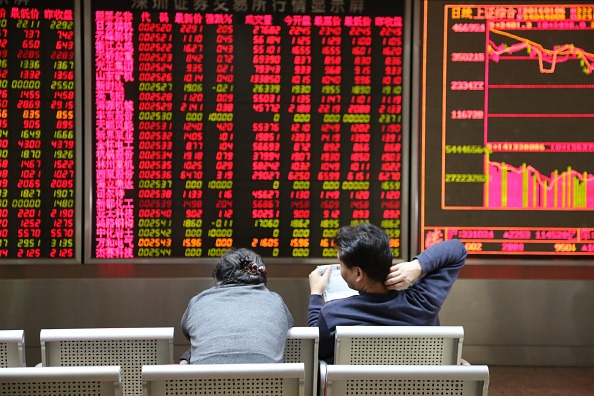What You Need to Know About the Potential for a Mass Delisting of Chinese Stocks
The fate of 200+ Chinese companies listed on American exchanges still hangs in the balance, but recent reports suggest that a final decision on this topic could be made in December 2022.

One of the most interesting market stories of the 2022 trading year—Chinese stocks—looks as though it entered its final, critical stage. Once it arrives, it could impact the global financial markets greatly.
The fate of 200+ Chinese companies listed on American exchanges still hangs in the balance, and recent reports suggest that a final decision on this subject could be rendered at some point in December 2022.
But first, a brief summary of the situation.
Chinese companies have been trading on U.S. exchanges for many years. But what wasn’t understood, until recently, was that many Chinese companies have been exploiting a loophole in the system that allowed them to sidestep the stringent auditing standards typically required of overseas listings.
That was the case, until the U.S. Congress passed the Holding Foreign Companies Accountable Act (HFCAA) in 2020. According to that legislation, foreign companies that do not comply with U.S. auditing requirements will be delisted from American exchanges.
Back in 2020, the HFCAA indicated that companies would be deemed non-compliant if they failed to comply for three consecutive years—meaning the associated delistings wouldn’t commence until 2024, at the earliest.
The HFCAA applies to all overseas listings, but is widely regarded as a measure implemented specifically for Chinese companies—companies that have infamously shrouded key financial figures behind a government veil that limits foreign access to sensitive data.
Unfortunately, U.S. market participants have been continuously burnt by this lack of transparency, as a number of Chinese companies listed on American exchanges have fessed up to accounting irregularities in past years. Most recently it was Luckin Coffee, which plunged below $1/share back in 2020 after the company announced it had fraudulently inflated its sales numbers.
In the wake of that revelation, Nasdaq delisted shares of Luckin, and the company now trades over-the-counter (OTC) under the ticker LKNCY. Ostensibly, the HFCAA is intended to reduce the risk of future situations like Luckin.
At present, this topic is in the news because representatives from the United States and China have been working collaboratively to devise a plan whereby the audit results of Chinese companies listed on American exchanges could be reviewed by U.S. regulators. Such an agreement would theoretically help avert the mass delisting of 200+ Chinese companies from American exchanges, starting in 2024.
In late August, reports indicated that such a deal had been struck. However, additional details have emerged in the interim that indicates this deal is of the provisional variety.
As of now, American regulators will be traveling to China in mid-September to begin their audit reviews of Chinese companies listed on U.S. exchanges. But it’s been reported that those same regulators will announce in December 2022 whether the access granted to them has been sufficient.
This appears to be China’s last chance to appease American regulators. However, it’s possible that another last-ditch agreement could be cobbled together at some point before 2024 if this arrangement falls through.
Either way, investors and traders active in U.S.-listed shares of Chinese companies should be especially vigilant in Q4. If U.S. regulators confirm that their access has been sufficient to conduct comprehensive audit reviews, Chinese shares listed on U.S. exchanges could experience a strong boost in the coming months.
On the other hand, if U.S. regulators report their level of access has been insufficient, one could envision a sharp correction in this niche of the stock market. Under that scenario, the likelihood of a mass delisting event would increase substantially.
For now, investors and traders active in this space should be following to see whether any other Chinese firms announce accounting irregularities in Q4, or H1 2023. Should that occur, one would think that the new U.S.-China deal on audits would be in jeopardy.
Chinese-listed shares did get a strong boost when the aforementioned agreement was first announced in late August. However, that euphoria appears to have faded as of late, with Chinese-listed shares dropping back down toward the lower end of their 52-week trading ranges in early September.
For example, Baidu (BIDU) traded up from $128/share to $150/share when the news broke that an audit deal had been agreed upon. But weakness has crept back into Chinese shares in early September—BIDU is currently trading around $138/share.
To follow daily trading activity in Chinese-listed shares, readers can add the following tickers to their watchlists:
- Alibaba (BABA)
- Baidu (BIDU)
- JD.com (JD)
- Li Auto (LI)
- NetEase (NTES)
- Nio (NIO)
- Pinduoduo (PDD)
- Tencent (TCEHY)
Readers can also track and trade China-focused ETFs such as iShares China Large-Cap ETF (FXI), SPDR S&P China ETF (GXC) and KraneShares CSI China Internet ETF (KWEB).
For daily updates on everything moving the markets, tune into TASTYTRADE LIVE—weekdays from 7 a.m. to 4 p.m. CDT.
Sage Anderson is a pseudonym. He’s an experienced trader of equity derivatives and has managed volatility-based portfolios as a former prop trading firm employee. He’s not an employee of Luckbox, tastytrade or any affiliated companies. Readers can direct questions about this blog or other trading-related subjects, to support@luckboxmagazine.com.



















